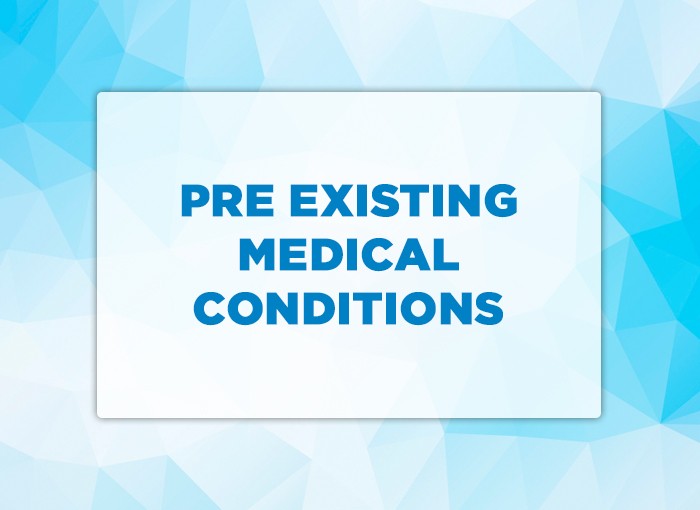What are Pre-existing Medical Conditions?
Pre-existing medical conditions are a hot topic for obvious reasons such as higher premiums, a waiting period, and lower death benefits. Many studies have shown that the reimbursement rate relatively depends upon all payers like Medicare, Medicaid, and private insurers. This is why it is worth noticing that understanding pre-existing conditions can help your patients be treated the same as those w/o medical conditions in terms of coverage, access, and affordability.
Pre-existing medical condition is a health problem that your patient had before even starting the new health care plan. They tend to range from chronic conditions such as COPD, diabetes, and sleep apnea to life-threatening medical illnesses like cancer, heart attacks, and other situations such as prescription drugs and a broken leg.
Under the Affordable Care Act, insurers cannot refuse to cover the treatment or charge significantly higher premiums for your patient’s pre-existing conditions. Unpretentiously called Obamacare, the Affordable Care Act came into existence in 2014 to make affordable quality health insurance accessible to a larger demographic. Before 2010, the insurers would review the enrolled applications. As for a pre-existing condition, they didn’t cover them leaving the uninsurable people devastated or making them responsible for the cost of the medical treatment. This highlighted the need of a comprehensive guaranteed health protection plan to the applicant regardless of their medical status, preventing insurance companies from outrightly rejecting anyone with a pre-existing condition.
Some examples of pre-existing medical conditions?
Health conditions like epilepsy, many forms of cancer, depression, lupus, diabetes, high blood pressure, sleep apnea, etc., are all examples of pre-existing medical conditions. The exclusions under pre-existing conditions play a bigger deal in getting your health insurance coverage.
For instance, if you enrolled in an insurance plan excluding your pre-existing condition, that is, high blood pressure, and you had a stroke because of high blood pressure. Then, the insurer might refuse to pay, stating the stroke was because of excluded high blood pressure. It would say that the stroke couldn’t get coverage at all. While choosing coverage options if you require regular treatments, surgeries, and medical care, enroll with a lower deductible and higher premium plan to manage the expensive treatments.
Can I be denied if I get pregnant?
No, if you get pregnant before you apply. You cannot be denied coverage by your insurance plan or charged more due to pregnancy. Once you are enrolled, the health coverage for pregnancy and childbirth starts from the day of your insurance plan.
Does my health coverage plan have a waiting period?
No, health plans, including pre-existing conditions, do not have waiting periods. Marketplace plans can’t put on lifetime limits, so choosing a health plan which covers pre-existing conditions to an extent becomes important.
If your employer offers a health insurance plan, they will start an annual open enrollment period, an opportunity for you to make changes to your coverage and medical history. As per HIPAA regulations, your medical history will not be a factor for coverage rejection.




